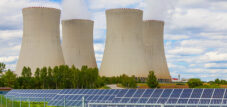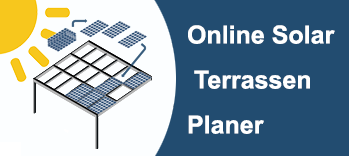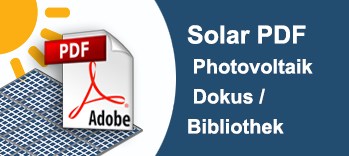Solar system construction – current status in Germany: The situation in the photovoltaics industry will remain tense in 2025
Xpert pre-release
Language selection 📢
Published on: January 5, 2025 / Update from: January 5, 2025 - Author: Konrad Wolfenstein

Solar system construction - Current status in Germany: The situation in the photovoltaics industry will remain tense in 2025 - Creative image: Xpert.Digital
The challenges of the photovoltaics industry in 2025
The photovoltaics industry is currently facing a challenging phase that is shaped by economic and political as well as technical factors. Companies are struggling with falling margins, falling demand and difficult conditions as politicians try to promote the expansion of renewable energies while at the same time paying attention to economic stability. Although some observers are critical of the future prospects, photovoltaics are still considered a central technology for the energy transition. At a time when climate change is becoming increasingly noticeable, solar energy remains a beacon of hope for many. The situation in the solar industry in 2025 will be examined in detail below in order to provide a comprehensive overview of current developments, challenges and possible solutions.
Economic situation of the industry
The economic situation in the photovoltaics industry has worsened significantly since 2024. A large number of bankruptcies shocked the market and left numerous stakeholders unsettled. Not only start-ups and small businesses were affected, but also established companies that had developed a stable market position over the years. “The current wave of bankruptcies shows how fragile the business environment is,” said an insider. In fact, several well-known companies, including Eigensonne, Amia Energy, Enersol and Wegatech, were forced to declare bankruptcy. Observers speak of a veritable chain reaction, as the insolvency of a large market participant often also causes considerable difficulties for suppliers and service providers. In the economic context, this creates a vicious circle in which growing uncertainty can lead to further bankruptcies.
Suitable for:
Slump in demand and decline in investment
“The demand for photovoltaic systems has plummeted,” report industry representatives, who have become increasingly concerned about the future of their companies in recent months. High energy prices, an ongoing economic crisis in Germany and rising unemployment numbers are causing households and companies to critically examine their spending. Investments in photovoltaic systems - which promise medium to long-term savings and environmentally friendly electricity generation - are often associated with high initial costs. Especially in phases of economic uncertainty, private individuals and companies like to postpone such expenses until better times. The result is falling incoming orders and a noticeable decline in sales of solar modules, inverters and other components. Those who previously stocked large quantities of material now have to contend with a rapid drop in prices, which is further shrinking their margins.
Competition intensity and price decline
The intensity of competition had already been high for a long time. For manufacturers, dealers and installers, there is ruinous competition in which providers on the market undercut each other. Some players speak of “self-destructive price wars” that can secure individual projects in the short term, but destabilize the entire market in the long term. Companies with larger inventories in particular find themselves in a dilemma: “Either you sell at ridiculous prices and reduce losses, or you wait for the market to recover,” said a company boss. In both cases, the risk remains high as it is uncertain whether and when the industry can really recover.
Political and regulatory challenges
Political and regulatory factors also contribute to the tense situation. At the beginning of 2025, a reduced feed-in tariff came into force, making the operation of newly installed photovoltaic systems less lucrative. The feed-in tariff is now only 7.94 cents per kilowatt hour. For comparison: systems that went into operation by August 2024 still received 8.03 cents per kilowatt hour. “This change may seem small at first glance, but all in all, every cent of difference makes a huge difference in the economic viability of a solar project,” explains an expert. This further weakens the financial incentive to invest in solar energy. In addition, there is the planned elimination of remuneration in the event of negative electricity prices, which no longer guarantees operators any revenue during certain time windows. One operator puts it this way: “If we no longer earn anything during phases of negative electricity prices, we have to calculate carefully whether a new building is even worth it.”
Bureaucratic hurdles and approval processes
In addition, bureaucratic hurdles appear to not only persist in some regions, but are even getting worse. Although the government repeatedly announces that it will simplify approval procedures and speed up administrative procedures, the practice is different in many places. “The processing time for some inquiries has almost doubled for network operators,” complain several installation companies. Instead of fewer formalities, you often have to adapt to even more complex processes in order to receive a feed-in commitment, for example. This leads to further delays and planning uncertainties, which are particularly felt by project developers of large systems. For medium and large projects, the time horizon for implementation can be several years. If banks are also more cautious about granting loans due to the uncertain market environment, the project developers' financial risk increases enormously. They often have the main responsibility for preliminary planning, procurement of space, preparation of reports and coordination with authorities and network operators. If investors leave at short notice or if decisions are delayed, there is a risk of high losses.
Technical limits of the network infrastructure
In some regions there are also technical limits to the network infrastructure. The low-voltage and, in some cases, the medium-voltage network had been upgraded in recent years, but not always at the same pace at which photovoltaic projects were being implemented. “The capacity limits of many local networks have been reached,” said a network operator. As a result, new PV systems can no longer simply be connected to the grid without first carrying out expensive grid reinforcements. This not only leads to frustration among investors, but can also jeopardize local expansion goals.
The importance of photovoltaics for the energy transition
Despite these challenges, it is undisputed that photovoltaics plays an important role in the energy transition. Solar energy is considered one of the cleanest technologies for generating electricity and has become increasingly important worldwide due to its rapid increases in efficiency and falling production costs.
Political framework conditions
The federal government continues to see photovoltaics as a key solution for the planned restructuring of the energy supply. The goal of installing a total of 215 gigawatts of new solar capacity by 2030 is more ambitious than ever given the current situation, but it remains the same. Official statements say that the crisis can also be seen as an opportunity: “We want to get out of the current dip and make our companies fit for global competition.” Corresponding funding programs and deregulation measures have already been announced, although not yet in full implemented. Industry representatives are therefore calling for even more decisive steps. “If you really want to accelerate the energy transition, you have to invest massively in solar now and create faster approval processes,” said a lobbyist.
Innovative approaches in the solar industry
In parallel with politics, the solar industry itself is also required to take innovative approaches. Some companies try to open up new markets through specialization. For example, there is increasing focus on the integration of photovoltaics and e-mobility. Charging stations for electric cars will be powered by solar power, which will create new revenue models. Other companies are investing in research and development of high-performance modules that promise higher yields for the same amount of space. In addition, the topic of electricity storage is becoming increasingly relevant. “Battery storage could be an important component for balancing peaks and valleys in the power grid,” says a researcher. By temporarily storing solar power and releasing it when needed, fluctuations in production can be better cushioned. This could further improve the economic viability of photovoltaic systems and simplify integration into the existing network.
Sector coupling and its challenges
Another starting point is sector coupling, in which energy from photovoltaics is used for heat and mobility. Buildings can be heated or air-conditioned with solar power, and there is also potential in industry. However, the pioneering role that Germany has played in the field of renewable energies in recent years is at risk of a noticeable setback if the current crisis leads to a long-lasting investment and innovation backlog. In addition to the purely ecological aspect, it is also essentially about competitiveness and securing the location. Companies forced to withdraw from the market now may not be easy to replace when demand picks up.
Financial perspectives and challenges
Banks and investors are watching the development with mixed feelings. On the one hand, solar energy is still considered a future market. The potential is enormous, not least due to the global trend towards renewable energies. On the other hand, the current uncertainty, price volatility and reduced funding rates result in increased investment risk. “Many financial institutions are very cautious at the moment and are more likely to grant loans to established companies with solid balance sheets,” say banking circles. Start-ups with unconventional business models in particular have difficulty securing the necessary capital to develop and market new technologies.
Optimism despite challenges
Nevertheless, optimism is also emerging. Some industry insiders see the bankruptcies as a kind of market shakeout in which only the financially strongest and most innovative companies survive. They could then benefit in the long term from less competition and expand their position in a promising segment. It is said: “Those who survive this turbulent time will emerge from it stronger.” At the same time, one should not underestimate the fact that every insolvency costs jobs and know-how. The goal of installing massive amounts of new solar power by 2030 can only be achieved if there are enough qualified specialists and a close-knit network of service providers. The industry therefore needs both a favorable political environment and economic stability in order to fulfill its central role in the energy mix.
Suitable for:
Consolidation phase in the photovoltaics industry
Despite major challenges, the photovoltaic industry in Germany plays a central role in the energy transition. The massive bankruptcies, the decline in demand, the pressure on margins and the tightening of the regulatory framework are the current stumbling blocks for solar companies of all sizes. There are also technical problems such as bottlenecks in the power grid and longer approval procedures. “The industry is going through a tough test,” admits a government representative, who at the same time emphasizes that the situation must be used to improve structures and lay a stable basis for future growth.
It can hardly be denied that photovoltaics still have great potential: technological progress, the growing importance of climate protection and the global orientation of many companies are arguments that speak against ultimate failure. Rather, it is to be expected that the industry will emerge in a new, more robust form after this consolidation phase. A combination of targeted funding, the elimination of bureaucratic obstacles, the expansion of the network infrastructure and continuous innovation could lead the photovoltaics sector back to growth. Whether this scenario actually occurs depends primarily on whether all relevant actors - politics, business, finance and society - pull together and sustainably support the expansion of renewable energies. However, one thing seems clear: photovoltaics remains an elementary building block for successfully mastering the climate and energy policy challenges of the coming years and decades.
Suitable for:
Our recommendation: 🌍 Limitless reach 🔗 Networked 🌐 Multilingual 💪 Strong sales: 💡 Authentic with strategy 🚀 Innovation meets 🧠 Intuition
At a time when a company's digital presence determines its success, the challenge is how to make this presence authentic, individual and far-reaching. Xpert.Digital offers an innovative solution that positions itself as an intersection between an industry hub, a blog and a brand ambassador. It combines the advantages of communication and sales channels in a single platform and enables publication in 18 different languages. The cooperation with partner portals and the possibility of publishing articles on Google News and a press distribution list with around 8,000 journalists and readers maximize the reach and visibility of the content. This represents an essential factor in external sales & marketing (SMarketing).
More about it here:
Short version: The current situation in the photovoltaics industry
The photovoltaic industry, once a shining example of the successful implementation of renewable energies, is currently facing a multitude of challenges that question its future viability. Economic, regulatory, technical and infrastructural problems have put the industry in a tense situation. Nevertheless, photovoltaics remains a central pillar of the energy transition and offers great long-term potential. This text highlights the current situation, analyzes the obstacles and shows possible solutions.
Economic challenges
Wave of bankruptcies and bankruptcies
The solar industry is being rocked by an unprecedented wave of bankruptcies. Well-known companies such as **Eigensonne**, **Amia Energy**, **Enersol** and **Wegatech** had to file for bankruptcy in 2024, and this negative trend will continue in 2025. Experts describe the situation as critical, as smaller and medium-sized companies are also increasingly affected. Bankruptcies are often caused by a combination of financial bottlenecks, overcapacity and strong competitive pressure.
“The industry is experiencing a correction phase that is forcing companies to rethink their business models,” says an industry insider. However, this consolidation process will initially lead to a decline in market diversity, which could limit competition in the medium term.
Decrease in demand
One of the main causes of the difficulties in the photovoltaics industry is the noticeable decline in demand for new systems. The economic situation in Germany is tense: high energy prices and a persistent economic crisis are causing both private households and companies to postpone investments in renewable energies. In addition, many people are deterred by uncertainties about future funding conditions or by unclear economic prospects.
“Many households simply can no longer afford to invest in photovoltaic systems despite government support programs,” explains an analyst.
Falling prices and pressure on margins
Another problem is the continued decline in prices for solar modules and other components. While this initially seems positive for consumers, it is putting massive pressure on companies' margins. Storage costs and the ruinous competition, especially from international suppliers, further increase the pressure. Some industry experts are already describing competition as “self-destructive” because price wars could also jeopardize the quality of the products and services offered in the long term.
Regulatory and political factors
Changes in the feed-in tariff
The political environment has also deteriorated for the industry. From February 2025, the feed-in tariff for newly installed photovoltaic systems will fall to **7.94 cents/kWh**, after it was **8.03 cents/kWh** in August 2024. These cuts mean lower revenue for operators and pose an economic challenge, particularly for smaller systems.
In addition, the federal government plans to completely abolish the feed-in tariff for photovoltaic systems during times of negative electricity prices. This plan has met with criticism from industry representatives. “We need stable and reliable framework conditions to ensure planning security,” demands an association representative.
Bureaucratic hurdles
Despite political promises to reduce bureaucracy in the energy sector, processes have become further complicated in many areas. In particular, the processing times for authorities and network operators are a major obstacle. The time between the application and the final network commitment has extended to several months in some regions. This significantly delays projects and increases uncertainty for investors.
Technical and infrastructural problems
Network capacities and congestion
Another key problem is the limited capacity of the power grids. In many regions, especially in rural areas, the **low and medium voltage networks** are already at capacity. This means that new photovoltaic systems cannot be connected to the grid or can only be connected with a delay. Large projects that could deliver high electricity yields often fail due to a lack of infrastructure.
Risks for project developers
The situation is also difficult for project developers of medium and large solar parks. The planning lead time for such projects is immense, and the financial risk often lies solely with the project developer. Banks are becoming increasingly skeptical about business models that are based on feed-in tariffs beyond the statutory EEG subsidies. Without additional security, financing such projects remains a challenge.
Suitable for:
- Strategies for optimizing housing construction in Germany: With the government's 14-point plan
- Construction industry: Why the construction industry is so important for the German economy - PDF - Figures, data and facts about the construction industry
Positive aspects and opportunities
Photovoltaics as the key to the energy transition
Despite the current difficulties, photovoltaics remains one of the most important technologies for implementing the energy transition. Solar energy is not only an environmentally friendly but also an increasingly cost-effective source of energy. The federal government has set itself ambitious goals: the installed capacity of photovoltaic systems is to be increased by **215 gigawatts** by 2030. This corresponds to a multiplication of the current capacities.
The importance of photovoltaics is underlined by its versatility. From the roof of a single-family home to large-scale solar parks, this technology can be used in different contexts. Integration into innovative energy systems such as **battery storage** or **intelligent grids** also offers great long-term potential.
Technological innovations
The photovoltaics industry is known for its innovative strength. New technologies such as bifacial solar modules, which can absorb light from both sides, or perovskite solar cells, which promise greater efficiency, could significantly increase the cost-effectiveness of systems. In addition, the combination of photovoltaics and electromobility is becoming increasingly important, as solar systems in parking lots or charging stations could become an integral part of modern mobility concepts.
Adjustments to funding policy
In order to stabilize the industry, associations and experts are calling for adjustments to funding policy. The aim should be to create reliable framework conditions that promote both private and commercial investments. For example, tax advantages for companies that invest in photovoltaics or low-interest loans for private households are conceivable.
International opportunities
There are also new opportunities for German companies at the international level. Countries such as India, Brazil and African countries are increasingly investing in the expansion of renewable energies. German technology enjoys an excellent reputation worldwide, and exporting know-how could open up new sources of income.
A path with challenges, but also perspectives
The photovoltaics industry is undoubtedly going through a difficult phase. Economic uncertainties, regulatory restrictions and technical problems place a significant burden on companies. Nevertheless, the chances outweigh the risks in the long term. With the right mix of technological innovations, policy adjustments and an increased focus on international markets, the industry could emerge from the crisis stronger.
The coming years will be crucial in setting the course for a sustainable and economically successful future. It is up to politics, business and society to work together on a solution that meets both the climate goals and the needs of the industry.
We are there for you - advice - planning - implementation - project management
☑️ SME support in strategy, consulting, planning and implementation
☑️ Creation or realignment of the digital strategy and digitalization
☑️ Expansion and optimization of international sales processes
☑️ Global & Digital B2B trading platforms
☑️ Pioneer Business Development
I would be happy to serve as your personal advisor.
You can contact me by filling out the contact form below or simply call me on +49 89 89 674 804 (Munich) .
I'm looking forward to our joint project.
Xpert.Digital - Konrad Wolfenstein
Xpert.Digital is a hub for industry with a focus on digitalization, mechanical engineering, logistics/intralogistics and photovoltaics.
With our 360° business development solution, we support well-known companies from new business to after sales.
Market intelligence, smarketing, marketing automation, content development, PR, mail campaigns, personalized social media and lead nurturing are part of our digital tools.
You can find out more at: www.xpert.digital - www.xpert.solar - www.xpert.plus




























